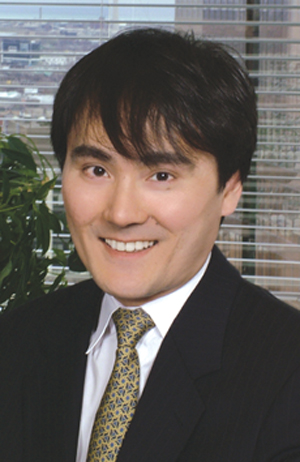NIAGARA FALLS, Ont. - The Canadian Bar Association opened its annual conference over the weekend with a controversial vote to oppose a bill that would require all justices of the Supreme Court of Canada to be bilingual.

Instead, in a resolution passed Saturday at the council held in Niagara Falls, Ont., it urged Parliament to take steps towards making the Supreme Court “institutionally bilingual.”
Then on Sunday, the conference was officially opened with a keynote address by economist Dr. Paul Krugman, who gave his trademark gloomy take on the worldwide economic outlook.
Krugman congratulated Canada for avoiding the worst of the global downturn, praising its strict financial regulation.
But he warned his audience this country may be entirely insulated from ongoing difficulties, noting high household debt and potentially inflated property prices.
“There’s always something that can go wrong in the future,” he said.
Bill C-232, a private members’ bill proposed by New Democrat Yvon Godin that has passed the House of Commons and is being considered in the Senate, would require all future appointees to understand French and English without the assistance of an interpreter.
The CBA resolution, moved by Analea Wayne, vice president of its Alberta branch, called a Supreme Court composed of judges who can understand both languages an “ultimate ideal,” but makes it clear that unilingualism should not be a bar to appointment.
“We are not prepared to contemplate, at this point, a bar to the appointment of unilingual candidates who are otherwise qualified,” she said.
“We have requested that steps be taken to have that individual work towards bilingualism,” said Wayne, who pointed to current Chief Justice Beverley McLachlin, a unilingual anglophone at her appointment, to show judges can make the jump.
Wayne said the Supreme Court of Canada is the only federally constituted court not required to be institutionally bilingual under the Official Languages Act. Its inclusion under the act would mean the judges hearing a particular case must be able to understand a litigant in their chosen official language.
Although the resolution, which was supported by branches in B.C., Alberta, and Saskatchewan, passed council comfortably, a significant minority voted against it. The Barreau du Québec has already offered unconditional support for bill C-232, which put its CBA members in an awkward position.
Simon Potter, a Quebec lawyer, said the CBA resolution does not go far enough.
“It really amounts to a statement that the way things are done today is perfectly alright,” he said.
Potter said an institutionally bilingual Supreme Court would simply mean those wanting to be heard in French will be heard by fewer judges.
“We don’t want to have to wait four or five years until they can understand French. The reality is that people who want to plead in French get a five-judge panel and people who want to plead in English get a nine-judge panel,” he said.
The Ontario Bar Association did not take a position on the resolution, but its incoming president, Lee Akazaki, said bill C-232 would create an unnecessary barrier to appointment to the Supreme Court.
“To have a fair hearing, you just need judges who know the law,” he said.
Former OBA executive member David Leech spoke out against the resolution for what he saw as the contradiction between supporting a bilingual Supreme Court and asking Parliament to abandon a bill that would achieve the same aim.
“Bill C-232 is a way of keeping pressure on the government to make the change this resolution seeks,” he said.
ADDITIONAL CBA ANNUAL MEETING COVERAGE:Watch the
video of Chief Justice Beverley McLachlin's annual update on the state of the Supreme Court of Canada.

 Instead, in a resolution passed Saturday at the council held in Niagara Falls, Ont., it urged Parliament to take steps towards making the Supreme Court “institutionally bilingual.”
Instead, in a resolution passed Saturday at the council held in Niagara Falls, Ont., it urged Parliament to take steps towards making the Supreme Court “institutionally bilingual.”